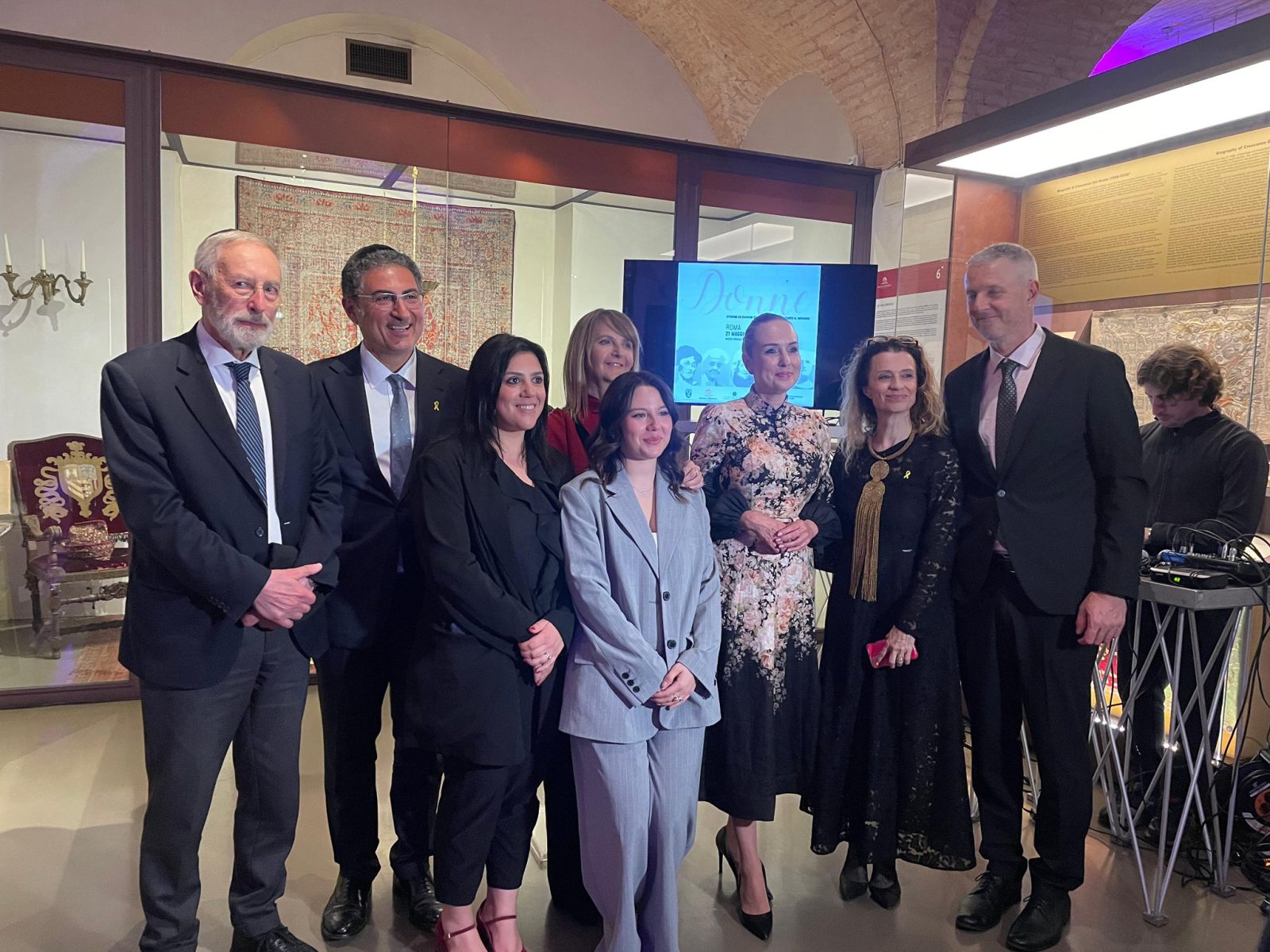ROME – A century of Jewish women on display

Images, biographies and fragments of history recounting the role of women in the 1900s. This is the concept behind the exhibition “Donne. Storie di donne che hanno influenzato il mondo” (Women: Stories of Women Who Have Influenced the World) is open at the Jewish Museum of Rome until September 1. Realized in collaboration with the Embassy of the Slovak Republic, the Slovak Institute, and the Museum of Jewish Culture in Bratislava, the exhibition is part of the program celebrating the 80th anniversary of the end of WWII.
Curated by Michael Vanek, Olga Melasecchi, Lia Toaff and Michelle Zarfati, the project focuses on Jewish, Italian and Slovakian female figures who endured extreme experiences such as the Holocaust and went on to make significant contributions in various fields, including science, culture, fashion and activism. “These are stories of survival, initiative, capability and responsibility”, Melasecchi explained, highlighting the importance of collaboration between Italian and Slovakian institutions in making the exhibition possible.
Next to well-known figures such as scientist Rita Levi-Montalcini, writer Elsa Morante and actress Franca Valeri, lesser-known individuals emerge, including fashion designer Roberta di Camerino and poet and patriot Amelia Rosselli. Each panel depicts a life and shows how women have silently, but decisively, impacted history. Victor Fadlun, president of the Jewish Community of Rome, said: “This exhibition is not only an homage. It is also an opportunity to reflect on our actions today, ensuring that these stories are not isolated.
The Chief Rabbi of Rome, Riccardo di Segni, noted the intertwining of memory and tradition. He dwelled on the inscription at the entrance to the museum, which is a blessing from the Roman liturgy on Saturdays. This pays homage to the women who make the ritual fabrics used to dress the Torah, highlighting the continuity between their traditional role and their active presence in contemporary society. He observed that some of these figures have been able to “flip the history of the world in many aspects.”
The Slovakian ambassador, Karla Matiasko Wursterová, linked the stories presented in the exhibition to current events in Europe: “In a time when antisemitism and hatred are resurfacing, mere remembrance is insufficient. We must build long-lasting instruments against intolerance. Education remains the most effective tool,” she said.
Translated by Rebecca Luna Escobar, student at the Advanced School for Interpreters and Translators of the University of Trieste, trainee in the newsroom of the Union of the Italian Jewish Communities – Pagine Ebraiche.
